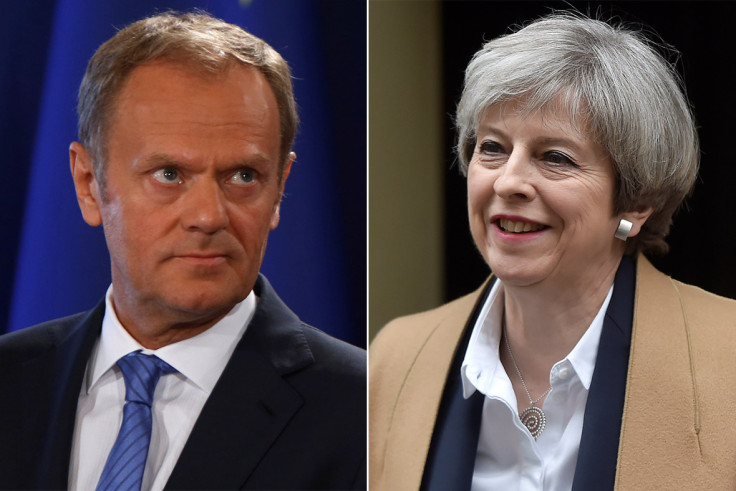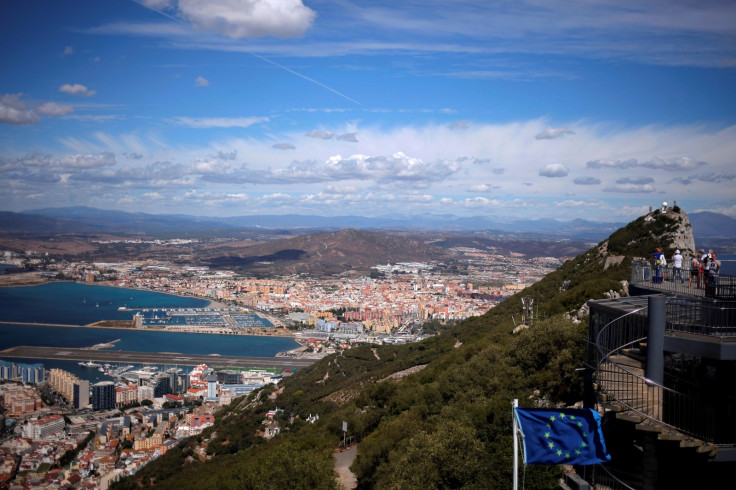The EU knows winning Gibraltar back for Spain is far less important than a great Brexit deal
It's unlikely that other EU members would let a beneficial Brexit deal be scuppered by Spain.
There are two parallel processes at work as Britain seeks a different relationship with the EU. There is a noisy, public engagement – carried out partly in newspapers – in which leaders on both sides look for wins. And there is a diplomatic engagement, in which the officials, whose job is to optimise these situations, seek the best outcome.
The row over the status of Gibraltar neatly illustrates the disconnect. It was one of just two jarring notes in an otherwise courteous and constructive response by the European Council to Britain's triggering of Article 50.
Let's look at the text of the EU's statement, rather than at some of the more imaginative reporting.
Brussels wants early progress in "reciprocal guarantees" to settle the status of EU nationals already in Britain and UK nationals in Europe. So does London. Brussels wants a "balanced, ambitious and wide-ranging" free trade agreement. So does London. Brussels wants "a partnership in other areas, in particular the fight against terrorism and international crime as well as security and defence". So does London. Brussels wants to "avoid a hard border" in Ireland. So do London and Dublin.
On the vexed question of whether the trade talks would have to wait until after the withdrawal terms have been settled, the EU proposes a compromise. Start the withdrawal talks, then start the trade talks.
The EU's position on doing the two things concurrently bears no relation to some of our headlines: "Negotiations under Article 50 will be conducted as a single package. In accordance with the principle that nothing is agreed until everything is agreed, individual items cannot be settled separately."

Quite. So, where are the areas of potential tension? Obviously, there will be talks on the extent to which the UK is required to match EU regulations in order to have market access. There may be some hard pounding on access for agricultural and fisheries products. There will, of course, be the question of outstanding liabilities (and accrued assets). And – the other jarring note in the response – there will be disagreement over the EU's desire to put safeguards against "social, fiscal or environmental dumping" into any trade arrangements.
These, though, are not irremediable problems. Both sides recognise the basic truth of trade negotiations: that wealthy neighbours make good customers. Theresa May keeps stressing – correctly – that she wants the EU to prosper. We are dealing with old friends and allies; and, even from a selfish perspective, the last thing we want is a disorderly collapse of the euro as a consequence of a messy Brexit.
So much for the diplomatic realities. What of the political imperatives? How do both sides posture for their electorates when their starting positions are, in reality, so close? The EU has decided that it needs to show that non-membership is costly. This is, by the way, a revealing strategy, since it implicitly concedes that leaving would make a country wealthier except insofar as Brussels deliberately seeks to damage it.
Be that as it may, though, EU leaders plainly want a visible win, and have hit on two things. First, the 'divorce bill'. Second, and more unexpectedly, Gibraltar.
On the first, a deal will almost certainly be found. The UK is not a country that breaks treaties. It will honour its outstanding commitments. If the EU wants to find a way to exaggerate that payment presentationally – some Eurocrats seem to be including the next two years' budget contributions in it, during which time Britain will obviously pay its subs, because it's still using the facilities – fine.
For what it's worth, I think the EU's fears of Brexit contagion are overblown. The UK has always been different: maritime rather than continental in outlook; selling more to non-European than to EU markets; with an economy that is cyclically and structurally Atlantic rather than European. Many of the arguments for Brexit simply don't apply to, say, Austria or Belgium, tied as they are to the eurozone economy. The only comparable EU economy is Ireland (whose non-EU trade will obviously shoot up after Brexit), and Ireland shows no interest in following.
The inclusion of Gibraltar in the text is more surprising and, from the EU's point of view, harder to explain. Are the other 26 countries truly content to allow an otherwise beneficial deal to be blocked by Madrid? Under Article 50, the deal doesn't require unanimity, only Qualified Majority Voting. By making one aspect of it dependent on Spain's agreement, they effectively give one government out of the 27 a unique veto power.

Are the Danes and Poles and Finns truly prepared to make the whole treaty dependent on the whims of Madrid? Or was that passage included as a sort of public slap on the wrist for the naughty Brits, something to be bartered away during the talks?
In truth, over Gibraltar as over the EU talks, the headlines are some way from reality. Spain has always demanded ownership of the Rock but, in recent years, has not allowed the dispute to prevent friendly relations with Britain. In much the same way, Portugal has never dropped its claim to the town of Olivenza, possessed by Spain for more than 200 years, while enjoying excellent relations with its larger neighbour. The world is full of these territorial disputes.
Spain has not used pursued its claim with force since 1782, though it maintained an economic blockade for three decades until 1984. Inside as well as outside the EU, it has continued to press for sovereignty, sometimes deliberately slowing traffic at the border. Such behaviour naturally strengthens the British identity of the 30,000 Gibraltarians who, in two referendums, have voted almost unanimously against any change in their status.
And yet, in practice, quite a lot of neighbourly activity goes on unremarked and unreported. The 2006 Córdoba Agreement resolved most of the practical, day-to-day disputes: the status of the airport, the availability of dial codes for landlines and so on. In other words, the Gibraltar dispute, like the wider Brexit discussion, masks quotidian co-operation under headline rows. Thousands of Spaniards cross the border every day to work – and they, in truth, are the ones who suffer most when there are go-slows.
The idea of a military conflict between Britain and Spain, two longstanding Nato allies, need only be stated for its absurdity to be evident. And there is no chance of Britain agreeing to alter the status of Gibraltar against the wishes of its inhabitants, as all sides recognise.
So why did the EU bring up Gibraltar at all? In the absence of a better explanation, I'm sticking with the slap-on-the-wrist theory. Brussels is effectively saying, "Until now we were neutral between two member states, but henceforth we represent only one side".
This is rather a novel doctrine. When Argentina – a non-member, obviously – invaded the Falkland Islands, almost exactly 35 years ago to the day, Britain asked the EU to respond with economic sanctions. It did so only on the basis that Italy and Ireland were allowed to opt out. Spain, not at that stage a member, was pro-Argentina. Which was, of course, its right. Obviously, EU member states are going to disagree on some of these disputes as they do on, say, recognition of Kosovo.
Perhaps EU diplomats have misread the situation, failing to appreciate the political reality that no British government can make concessions on Gibraltar, even if it means no deal.
Such an outcome is in no one's interest – including Spain. Everyone knows it; which is why, in the event, the other 26 governments are unlikely to sacrifice a real gain – a successful treaty on trade and security – for a goal which even in theory benefits only one state and, in practice, not even that one.
© Copyright IBTimes 2025. All rights reserved.





















